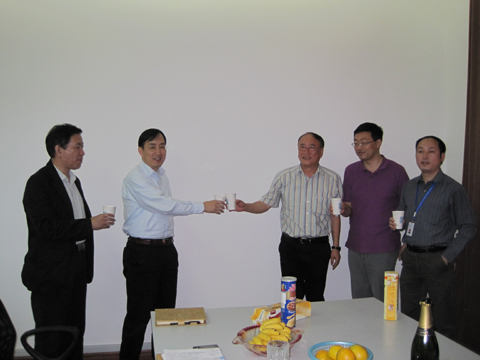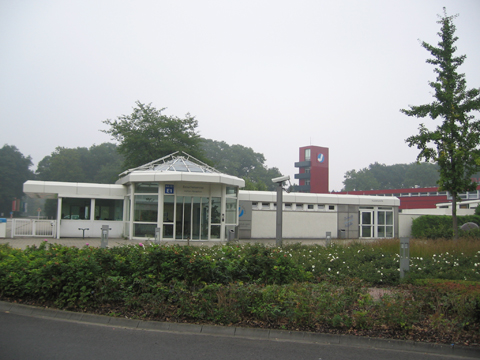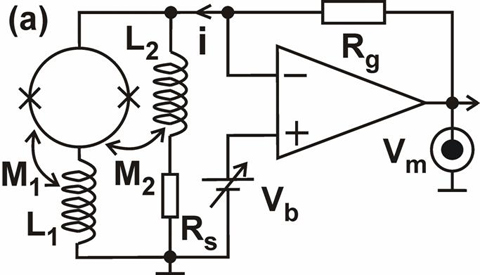| News |
| Events | |
| Int’l Cooperation News | |
| Upcoming Events |
| Sino-German cooperation makes big progress on“Novel SQUID/electronics” |
| 2009-11-12 | A A A 【print】【close】 |
Recently, high leaders of Shanghai Institute of Microsystem and Information Technology (SIMIT) and scientists from SIMIT and Research Center Juelich, Germany, celebrated their encouraging results of cooperation. The cooperation is on SQUID (Superconducting QUantum Interference Device) based Ultra-low Field Nuclear Magnetic Resonance. During the cooperation, a novel type of SQUID/electronics named as SQUID bootstrap circuit was jointly worked out by scientists from both sides, among which Professor Xiaoming Xie from SIMIT and Professor Yi Zhang from Juelich initiated the concept, guided the whole working processes and many scientists from both sides made comprehensive contributions. The proposal addresses the difficulty of direct readout of the tiny SQUID signal which is very important for SQUID applications, especially those which need low cost, compact system and large number of channels. The SQUID bootstrap circuit consists of two branches, the first branch has an inductance connected in series to a conventional SQUID and the branch is shunted by the second branch consists of another inductance and a resistance. The new two-terminal device, if voltage biased at the right work point, demonstrates greatly enhanced current to flux transfer coefficient and high dynamic resistance, finally resulting in low noise with very simple readout electronics. After more than one year of extensive discussions, many trail and failures and many sleepless nights, the proposal was finally justified by scrutiny and solid experimental validation. A joint patent was applied (PCT/EP2009/061699) and several publications are under preparation. The results were reported at the East Asia Symposium on Superconductor Electronics (EASSE2009) during Oct 12-15, 2009, and attracted much attention. The cooperation between SIMIT and Research Center Juelich was originally initiated in May 2007, by Prof. Jiang Mianheng, vice president of the Chinese Academy of Sciences, and Prof. Achim Bachem, vice president of Helmholtz Association which is one of the largest research bodies in Germany. Ever since the establishment of the general intent of cooperation by the two vice presidents, the first workshop of cooperation was successfully held in Juelich between April 25-31, 2008; one person jointed SIMIT after four-year PhD studies at IBN-2 of Research Center Juelich; one sandwich-student from SIMIT joined Juelich in 2008 followed by another four in 2009, and many visits between research scientists and high leaders of both sides were made during the last one and a half year. Thanks to the strong contributions of Dr. H.-J. Krause, leader of the magnetic sensor team of IBN-2 and Prof. A. Offenhaeuse, who visited SIMIT recently and deeply impressed by the competences of the SIMIT superconductor application team and the complementary nature of both sides on ultra low field NMR, a Bilateral Cooperation in Education and Research was finally approved by the International Bureau of the Federal Ministry of Education and Research, Germany. With this bilateral cooperation, 17 scientists from both sides will visit the cooperation partner in the coming months with a total number of 126 days, which is deemed to open more opportunities for further cooperation. The successful cooperation of the starting phase has encouraged both parties to move forward. The second workshop is planned in May 17-21, 2010, shortly after the grand opening of the world expo 2010. Both vice presidents are invited to witness their first fruits. “Better city, better life”, “Better cooperation, better results”. Looking back to the success story of the first phase, both parties have enough reasons for a greater expectation of the future cooperation. |




